
Phuket: The Pearl of the Andaman Sea
Phuket, Thailand's largest island, is a tropical paradise known for its stunning beaches, vibrant nightlife, and rich cultural heritage. Located in the Andaman Sea, this island offers something for every type of traveler. From the bustling streets of Patong to the serene shores of Kata Beach, Phuket's diverse landscapes and activities cater to both adventure seekers and those looking to relax. One of the highlights of Phuket is its array of beaches. Patong Beach is famous for its lively atmosphere, water sports, and vibrant nightlife, while the quieter Nai Harn Beach is perfect for those seeking tranquility. For an unforgettable experience, visit the Phi Phi Islands, a short boat ride away, where you can snorkel in crystal-clear waters and enjoy breathtaking views. Phuket is also rich in culture and history. The Old Town is a must-visit, with its well-preserved Sino-Portuguese architecture, charming cafes, and local markets. Don't miss the Big Buddha, a massive statue that offers panoramic views of the island. For a taste of local life, visit the bustling night markets where you can sample delicious Thai street food and shop for unique souvenirs. Adventure enthusiasts will find plenty to do in Phuket. From zip-lining through the jungle to exploring hidden caves and temples, the island is a playground for outdoor activities. Diving and snorkeling are also popular, with numerous spots teeming with marine life. Phuket's culinary scene is another highlight. From beachside seafood shacks to gourmet restaurants, the island offers a wide range of dining options. Try local dishes like Pad Thai, Tom Yum Goong, and fresh seafood to truly experience the flavors of Thailand.
Local tips in Phuket
- Visit during the dry season (November to April) for the best weather.
- Rent a scooter for easy and affordable transportation around the island.
- Bargain at local markets to get the best deals on souvenirs and street food.
- Respect local customs and dress modestly when visiting temples.
- Book tours and excursions in advance to secure spots, especially during peak season.
Neighbourhoods in Phuket
Phuket: The Pearl of the Andaman Sea
Phuket, Thailand's largest island, is a tropical paradise known for its stunning beaches, vibrant nightlife, and rich cultural heritage. Located in the Andaman Sea, this island offers something for every type of traveler. From the bustling streets of Patong to the serene shores of Kata Beach, Phuket's diverse landscapes and activities cater to both adventure seekers and those looking to relax. One of the highlights of Phuket is its array of beaches. Patong Beach is famous for its lively atmosphere, water sports, and vibrant nightlife, while the quieter Nai Harn Beach is perfect for those seeking tranquility. For an unforgettable experience, visit the Phi Phi Islands, a short boat ride away, where you can snorkel in crystal-clear waters and enjoy breathtaking views. Phuket is also rich in culture and history. The Old Town is a must-visit, with its well-preserved Sino-Portuguese architecture, charming cafes, and local markets. Don't miss the Big Buddha, a massive statue that offers panoramic views of the island. For a taste of local life, visit the bustling night markets where you can sample delicious Thai street food and shop for unique souvenirs. Adventure enthusiasts will find plenty to do in Phuket. From zip-lining through the jungle to exploring hidden caves and temples, the island is a playground for outdoor activities. Diving and snorkeling are also popular, with numerous spots teeming with marine life. Phuket's culinary scene is another highlight. From beachside seafood shacks to gourmet restaurants, the island offers a wide range of dining options. Try local dishes like Pad Thai, Tom Yum Goong, and fresh seafood to truly experience the flavors of Thailand.
When is the best time to go to Phuket?
Iconic landmarks you can’t miss
The Big Buddha, Phuket
Discover the Big Buddha in Phuket, a majestic symbol of peace and spirituality, offering stunning views and a serene atmosphere.

Cape Phrom Thep
Discover the breathtaking views and enchanting sunsets at Cape Phrom Thep, Phuket's iconic scenic spot, perfect for nature lovers and adventure seekers.
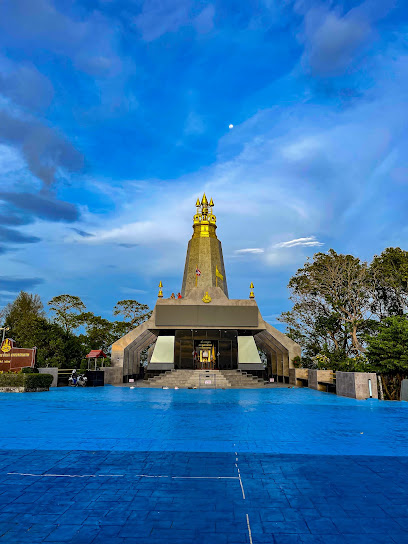
Tiger Kingdom - Phuket
Discover the thrill of interacting with majestic wildlife at Tiger Kingdom in Phuket – a top animal park offering unforgettable experiences.
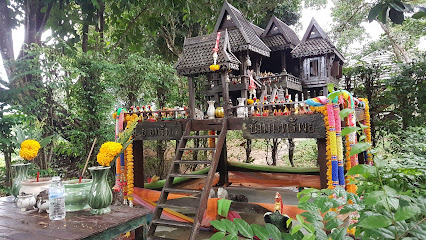
Freedom Beach
Discover the serene beauty of Freedom Beach in Phuket, a secluded paradise perfect for relaxation, swimming, and soaking up the sun.

Windmill Viewpoint
Discover the stunning vistas of the Andaman Sea at Windmill Viewpoint, a scenic spot in Rawai, Phuket, perfect for photography and cultural exploration.
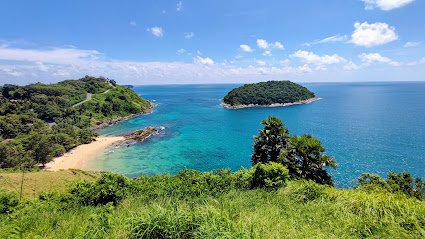
Saphan Hin
Discover the tranquil beauty and cultural significance of Saphan Hin, a must-visit park in the heart of Phuket, perfect for relaxation and exploration.
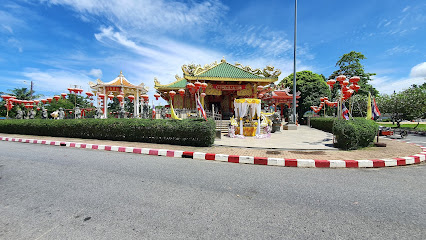
Green Elephant Sanctuary Park
Discover the heartwarming world of rescued elephants at Green Elephant Sanctuary Park, where ethical tourism meets unforgettable wildlife encounters.
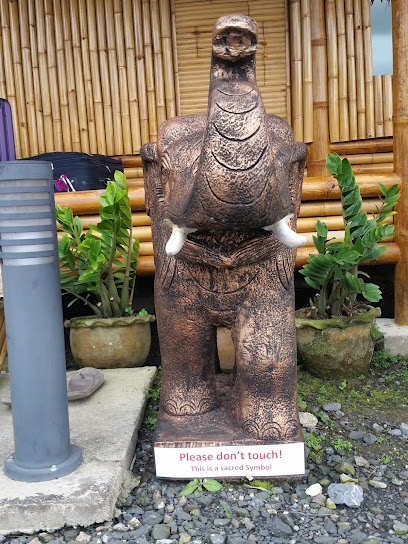
Phuket 3D Museum
Experience the magic of art at Phuket 3D Museum, where creativity and imagination come to life in stunning 3D installations.
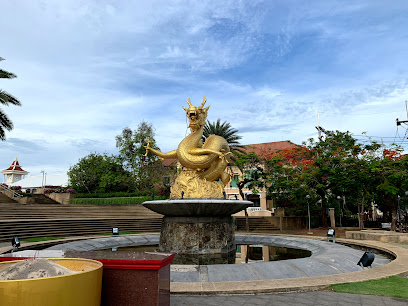
Kathu Waterfall
Explore the enchanting Kathu Waterfall in Phuket for a refreshing escape into nature amid lush landscapes and crystal-clear pools.
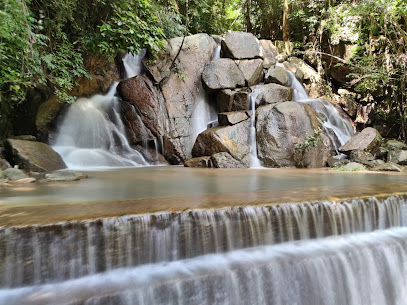
Ancient buildings in Sino-European style
Discover the enchanting Sino-European architecture in Phuket, a unique blend of cultures that tells the island's vibrant history.
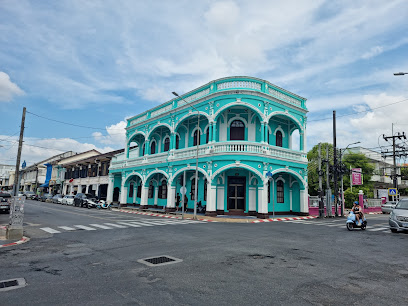
Monkey Hill Viewpoint
Discover the stunning vistas of Phuket at Monkey Hill Viewpoint, a top tourist attraction offering breathtaking views and playful monkeys.
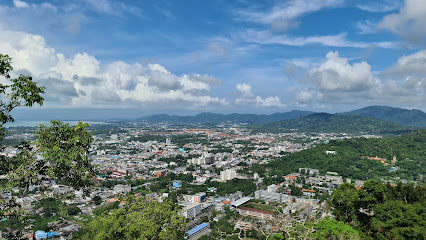
Aquaria Phuket
Explore Aquaria Phuket, where the vibrant underwater world comes alive with over 25,000 marine animals in an educational and entertaining setting.
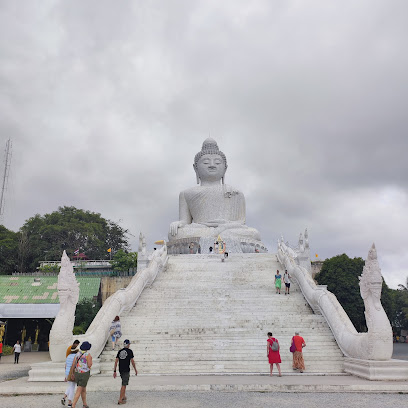
The Upside Down House Museum and Attraction Phuket
Explore the fantastical Upside Down House in Phuket, where gravity takes a break and imagination runs wild, perfect for memorable photos and family fun.
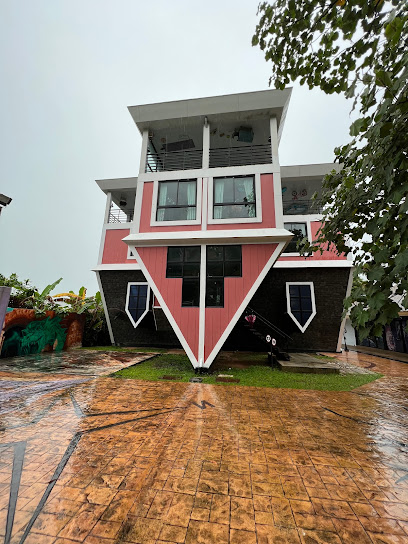
Tsunami Memorial Park
Discover the serene Tsunami Memorial Park in Phuket, a tribute to resilience and remembrance amidst lush green landscapes and art installations.
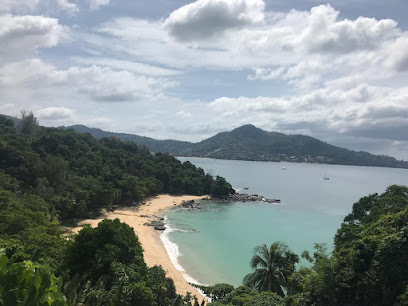
Nui Beach
Discover the tranquil beauty of Nui Beach in Phuket, where crystal-clear waters and stunning landscapes create a perfect escape for every traveler.
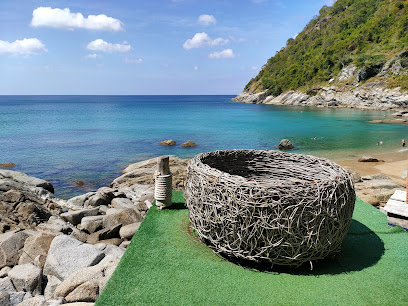
Unmissable attractions to see
Promthep Cape
Experience breathtaking sunsets and stunning views at Promthep Cape, Phuket's premier scenic spot and tourist attraction.
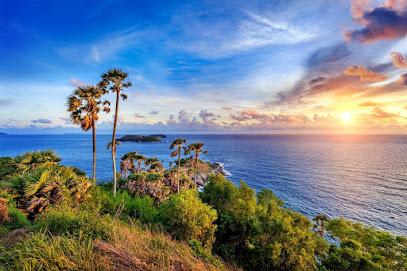
Karon Viewpoint
Experience stunning panoramic views of the Andaman Sea at Karon Viewpoint, a must-visit scenic spot in Phuket, Thailand.
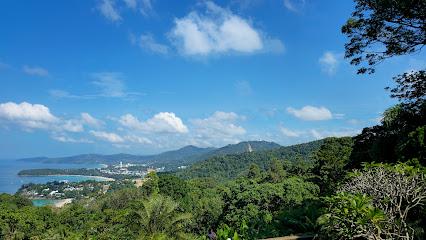
Tiger Kingdom - Phuket
Discover the thrill of wildlife encounters at Tiger Kingdom - Phuket, an ethical animal park where unforgettable memories await every visitor.

Siam Niramit Phuket
Discover Thailand's vibrant culture at Siam Niramit Phuket, where stunning performances bring the nation's history and traditions to life in a spectacular show.
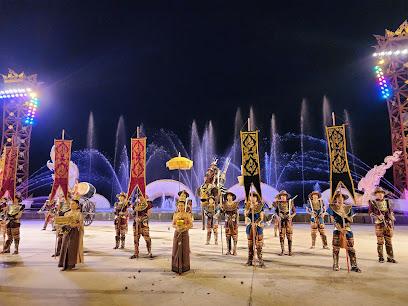
Karon Beach
Experience the serene beauty of Karon Beach, a tropical paradise in Phuket, where golden sands meet vibrant local culture and thrilling water activities.
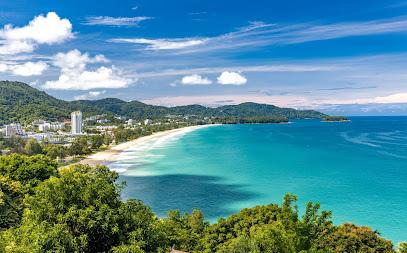
Freedom Beach
Discover the beauty of Freedom Beach in Phuket, a secluded paradise offering pristine sands, clear waters, and a tranquil escape from the everyday hustle.
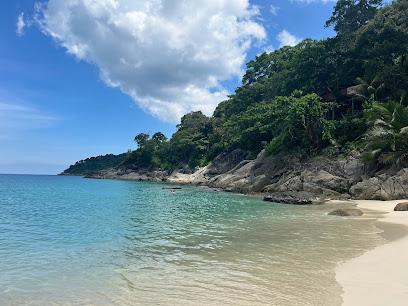
Sirinat National Park
Experience the beauty of nature at Sirinat National Park, where pristine beaches meet lush landscapes and vibrant wildlife in Phuket's tropical paradise.
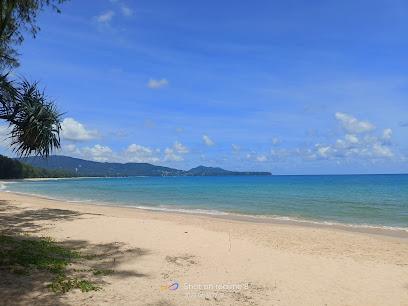
Phuket FantaSea
Discover the enchanting world of Phuket FantaSea, where Thai culture comes alive through spectacular performances and delightful dining experiences.
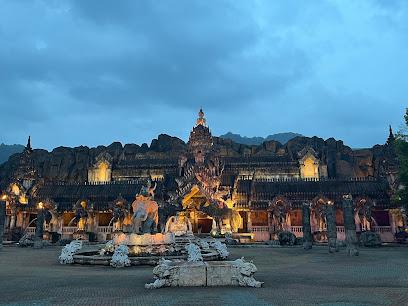
Phuket Aquarium
Discover the vibrant marine life at Phuket Aquarium, a captivating tourist attraction in Thailand that showcases the beauty of underwater ecosystems.
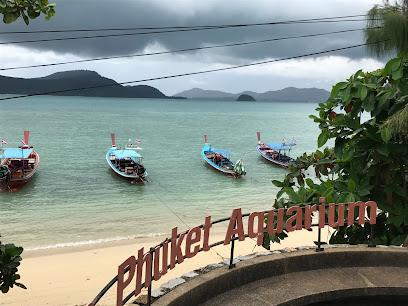
Green Elephant Sanctuary Park
Discover a unique blend of compassion and adventure at Phuket's Green Elephant Sanctuary Park, where rescued elephants find a loving home.
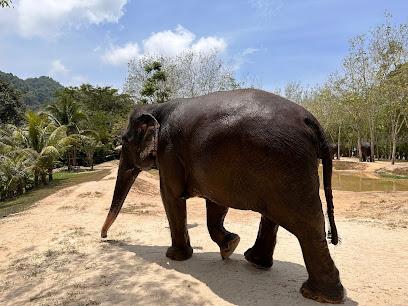
Andamanda Phuket
Experience the ultimate aquatic adventure at Andamanda Phuket, Thailand's premier water park, where excitement meets relaxation in a tropical paradise.
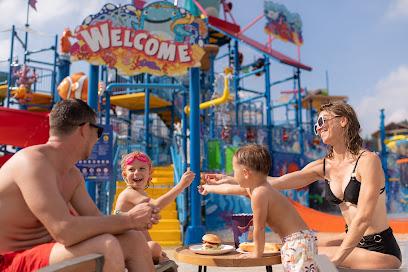
Royal Phuket Marina
Experience luxury and adventure at Royal Phuket Marina, a premier destination in Thailand for boating, dining, and relaxation.
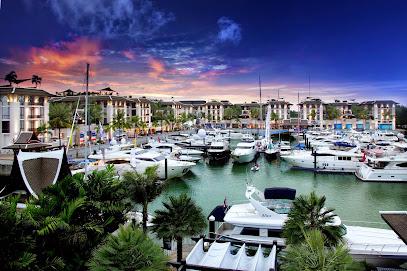
Carnival Magic
Discover Carnival Magic, Phuket's premier theme park, where thrilling rides, a gourmet buffet, and spectacular shows create unforgettable memories for every visitor.
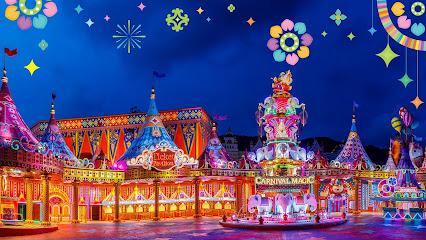
Kata Beach
Discover Kata Beach, a stunning Phuket destination with golden sands, crystal-clear waters, vibrant beach culture, and unforgettable sunsets.
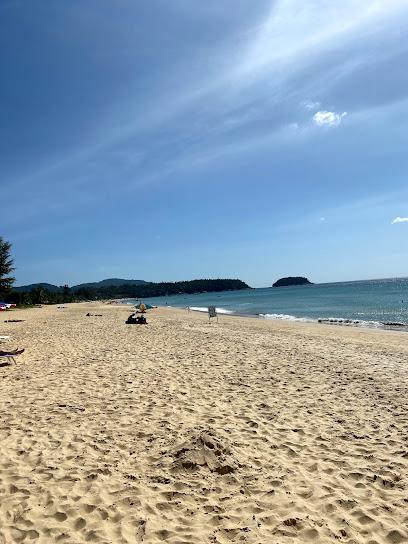
Rawai Beach
Discover the serene beauty and local charm of Rawai Beach, a hidden gem in Phuket perfect for relaxation and adventure.
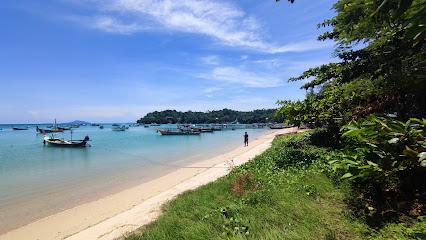
Essential places to dine
Three Monkeys Restaurant
Discover vibrant dining at Three Monkeys Restaurant in Phuket, where local flavors meet global culinary excellence amidst a lively atmosphere.
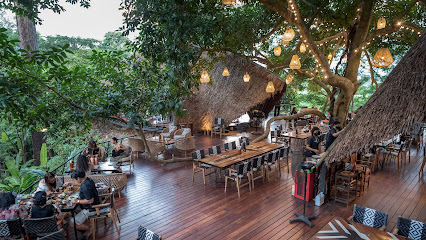
Go Benz Rice Porridge Phuket
Discover authentic Thai comfort food at Go Benz Rice Porridge in Phuket - famous for its rich flavors and cozy atmosphere.
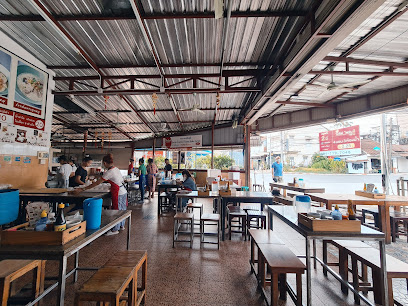
Tu Kab Khao Restaurant Phuket
Experience authentic Thai flavors at Tu Kab Khao Restaurant in Phuket - a culinary haven for food enthusiasts.
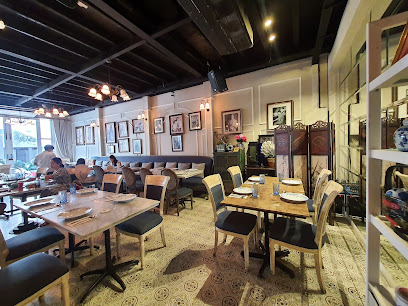
Kan Eang at Pier
Experience authentic Thai flavors and fresh seafood with stunning waterfront views at Kan Eang at Pier in Rawai, Phuket.
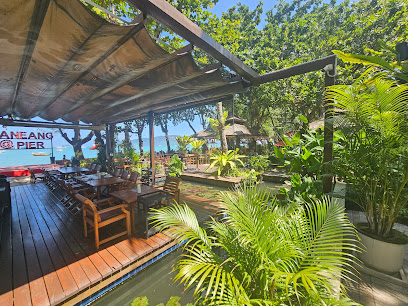
One Chun Cafe & Restaurant
Experience the best of traditional Thai cuisine at One Chun Cafe & Restaurant in Phuket – home to mouthwatering pad Thai and more.
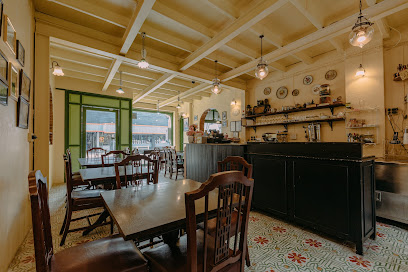
Phuketurk
Discover Phuketurk: A culinary gem in Patong offering Thai and international delights amidst Phuket's vibrant atmosphere.
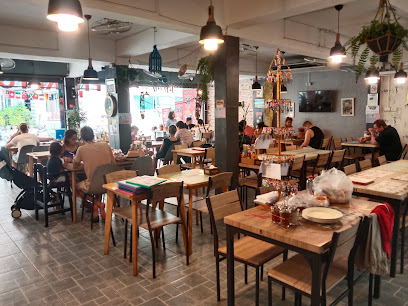
Raya Restaurant
Experience authentic Thai flavors at Raya Restaurant in Phuket - where tradition meets taste in every dish.
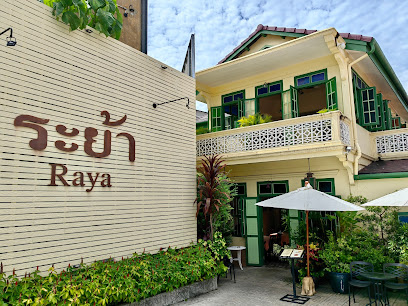
Day & Night Of Phuket
Savor exquisite Thai and international cuisine at Day & Night of Phuket - where flavors come alive in a vibrant setting.
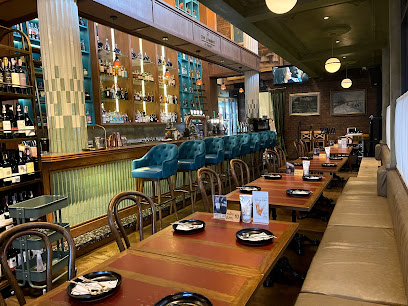
Blue Elephant Cooking School & Restaurant Phuket
Discover authentic Thai cuisine through immersive cooking classes and exquisite dining at Blue Elephant Cooking School & Restaurant in Phuket.
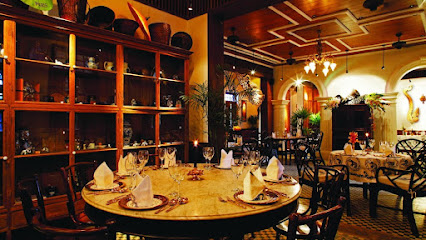
The Zula Phuket Turkish Restaurant & Cafè Patong
Experience authentic Turkish cuisine in Patong at The Zula Phuket - where every dish tells a story.
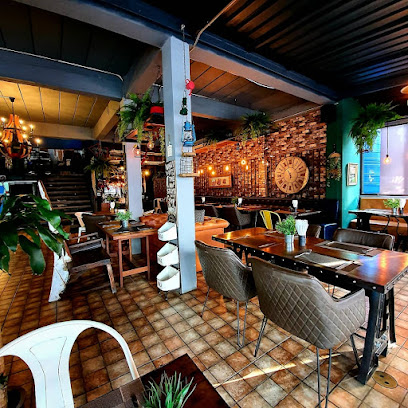
Tunk-ka Cafe
Discover Tunk-ka Cafe in Phuket: where stunning views meet authentic Thai flavors in a charming setting.
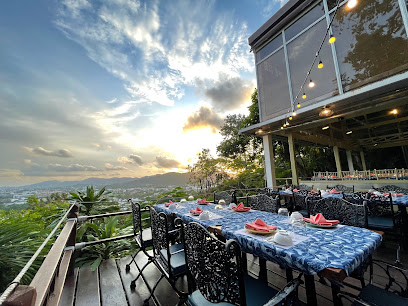
Natural Restaurant
Experience authentic Thai cuisine at Natural Restaurant in Phuket - where every dish tells a story of flavor and tradition.
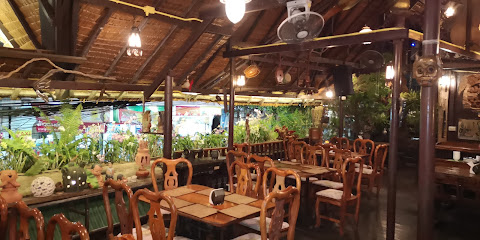
La Gritta
Experience authentic Italian flavors at La Gritta in Phuket with breathtaking ocean views and exquisite culinary delights.
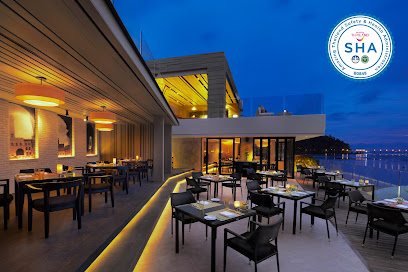
Mom Tri's Kitchen
Discover culinary excellence at Mom Tri's Kitchen in Phuket - where fresh seafood meets Asian fusion artistry in a stunning seaside setting.
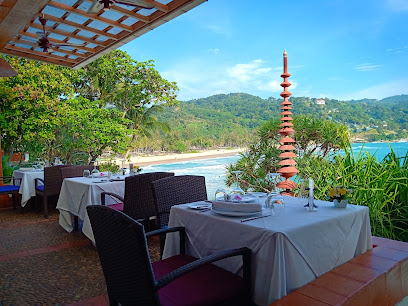
Black Cat Bar & Restaurant
Experience exquisite French and Thai cuisine at Black Cat Bar & Restaurant in Phuket – where culinary art meets vibrant culture.
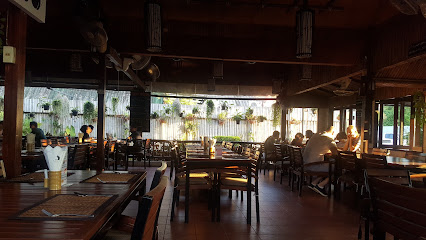
Markets, malls and hidden boutiques
Jungceylon
Discover Jungceylon, Phuket's premier shopping destination featuring a wide array of shops, dining experiences, and entertainment options for every traveler.
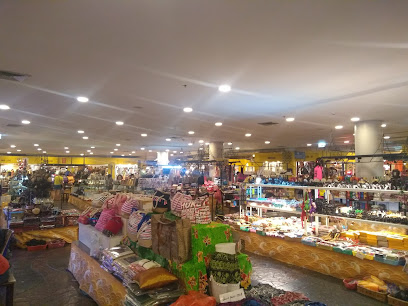
Premium Outlet Phuket
Explore Premium Outlet Phuket for exclusive discounts on international brands, delicious dining options, and a vibrant shopping atmosphere.
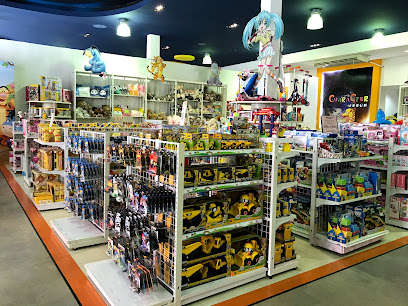
Limelight Phuket
Experience the vibrant shopping, dining, and entertainment at Limelight Phuket, a premier destination in the heart of Thailand's beautiful island.
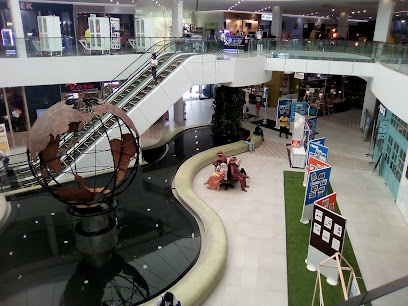
Expo Phuket
Discover a vibrant shopping experience at Expo Phuket, where local culture meets international brands in a modern mall setting.
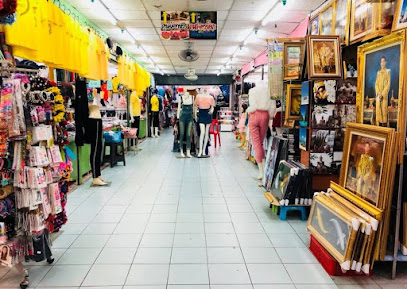
Turtle Village
Explore Turtle Village in Phuket: Uncover a vibrant shopping mall filled with local flavors, unique souvenirs, and delightful dining experiences.
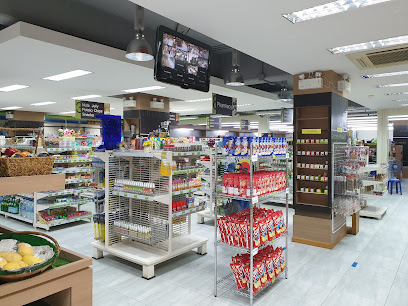
Phuket Grocery
Discover Phuket Grocery, a vibrant shopping mall offering local and international delights, fresh produce, and mouth-watering Thai cuisine.
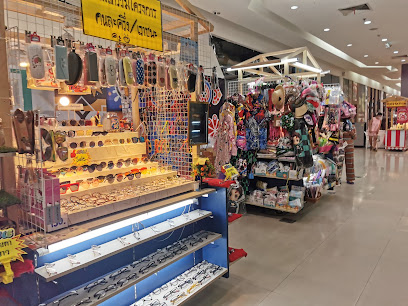
UNIQLO Tesco Lotus Phuket Store
Discover stylish and affordable fashion at UNIQLO's Tesco Lotus Store in Phuket, where quality meets modern design for all ages.
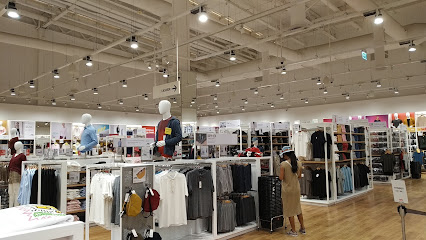
Ngor Kah Kee
Explore Ngor Kah Kee in Phuket for a unique shopping experience featuring local crafts, delicious food, and vibrant cultural elements.
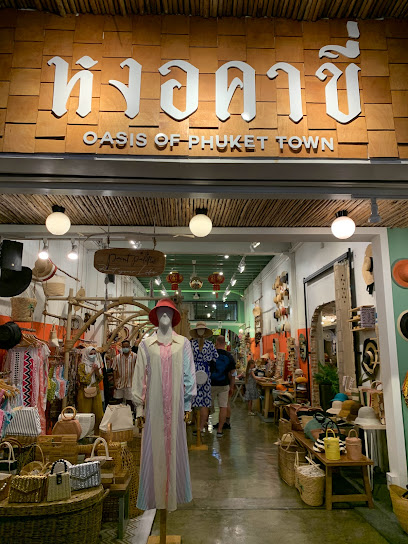
Phuket Old Town เมืองเก่าภูเก็ต
Discover the vibrant culture and history of Phuket Old Town, where colorful architecture meets local markets and delicious street food.
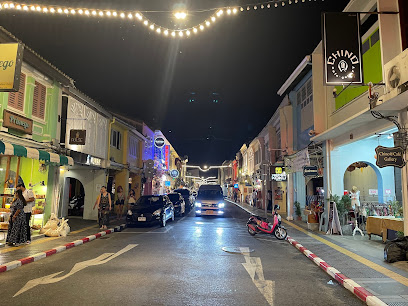
ES Phuket
Discover unique and stylish fashion at ES Phuket, a vibrant clothing store in Talat Nuea, offering a blend of local flair and modern design.
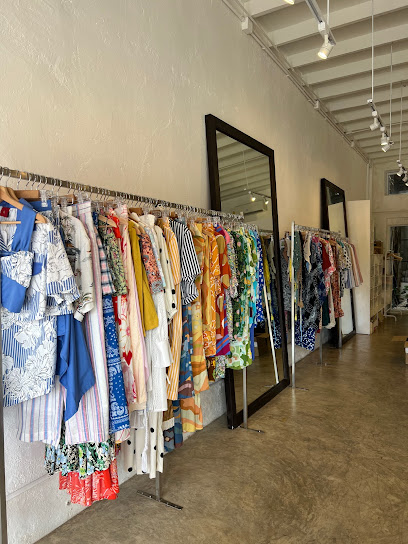
UNIQLO Central Phuket Store
Explore trendy and affordable fashion at UNIQLO Central Phuket, where style meets comfort in the heart of Thailand's shopping hub.

Gochapan Phuket
Explore Gochapan Phuket for unique souvenirs and local crafts that reflect the vibrant spirit of Thailand's culture.
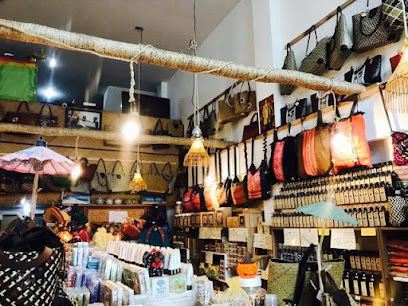
Mr.Gifts Kpop
Explore the ultimate K-Pop merchandise haven at Mr.Gifts Kpop in Phuket, where fans find unique collectibles and vibrant items celebrating their favorite idols.
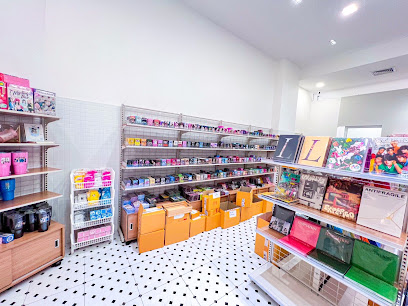
Central Department Store Phuket
Explore a world of luxury shopping, local delights, and culinary experiences at Central Department Store Phuket, your ultimate shopping destination.
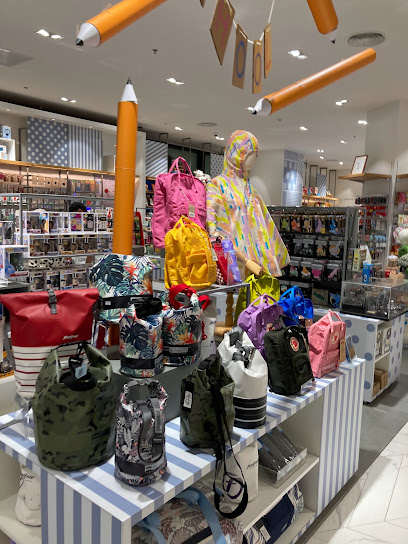
Japan outlet
Explore the exquisite craftsmanship of handmade pottery and ceramics at Japan Outlet in Phuket, where art meets tradition.
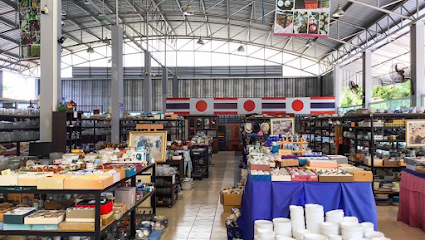
Essential bars & hidden hideouts
Aussie Bar
Experience the vibrant nightlife and authentic Australian grill at The Aussie Bar, a must-visit spot in Phuket's lively Bangla Road.
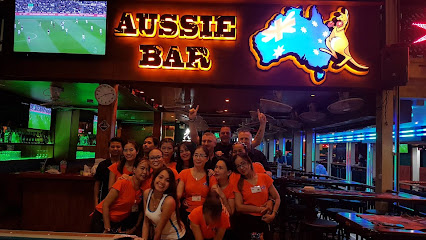
New York - Live Music Bar
Discover the heart of Phuket's nightlife at New York - Live Music Bar, where live performances and vibrant energy create an unforgettable experience.
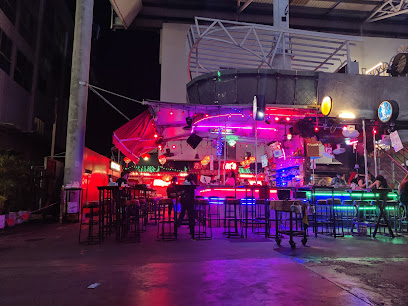
The Column Phuket
Experience the vibrant nightlife of Phuket at The Column, a lively bar and Thai restaurant with live music that captures the essence of local culture.
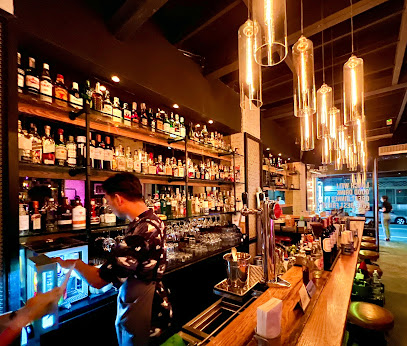
Barfunk Phuket
Discover the lively nightlife of Phuket at Barfunk, where dance, drinks, and unforgettable memories await you.
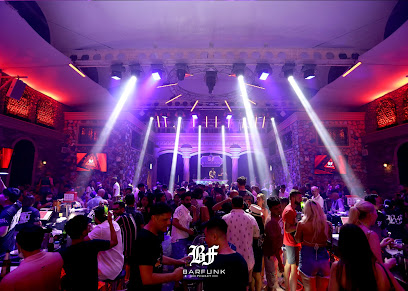
The Library Phuket
Experience the vibrant nightlife at The Library Phuket, where exquisite cocktails and a chic ambiance await in the heart of the island.
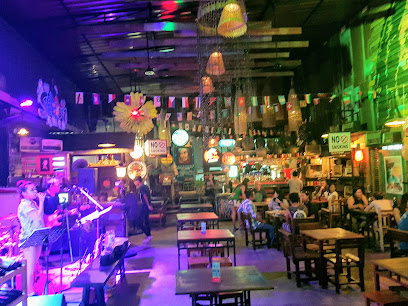
Stairs Phuket
Experience the vibrant nightlife of Phuket at Stairs Phuket, where cocktails, live music, and delicious cuisine converge in a lively atmosphere.
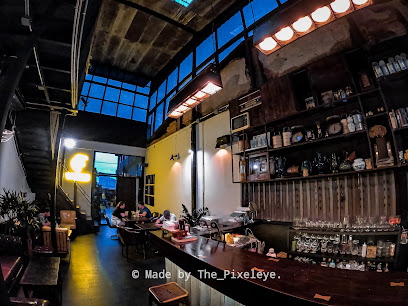
Dibuk House
Experience the lively nightlife of Phuket at Dibuk House, where unique cocktails and a vibrant atmosphere await every visitor.
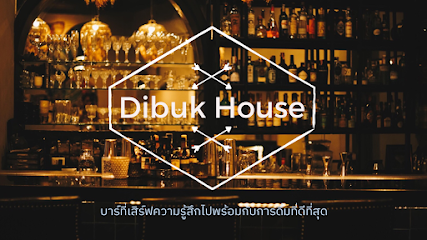
Club No 43
Experience the unique cocktails and vibrant nightlife at Club No 43, a premier cocktail bar in the heart of Phuket.
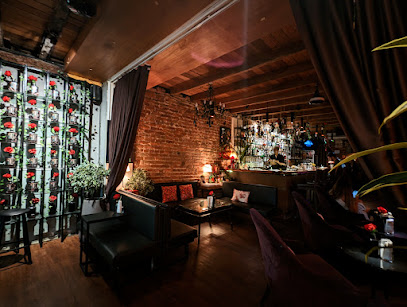
ROCKIN’ ANGELS Cafe
Experience the soulful sounds of live music at Rockin' Angels Cafe in Phuket, a vibrant venue for music lovers and food enthusiasts alike.
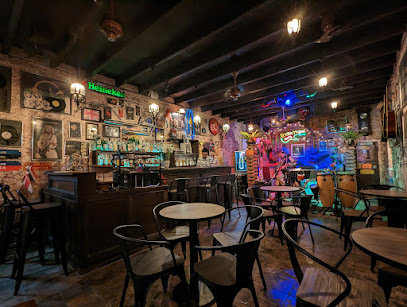
Malika Sky Bar
Experience breathtaking views and exquisite cocktails at Malika Sky Bar, the ultimate tropical nightlife destination in Phuket.
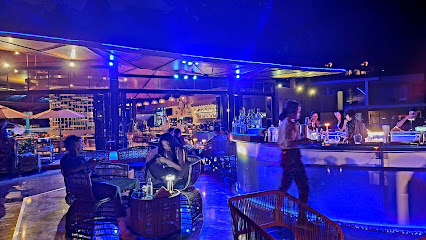
Cue bar
Experience the vibrant nightlife at Cue Bar in Phuket, offering delicious cocktails, a lively atmosphere, and unforgettable memories.
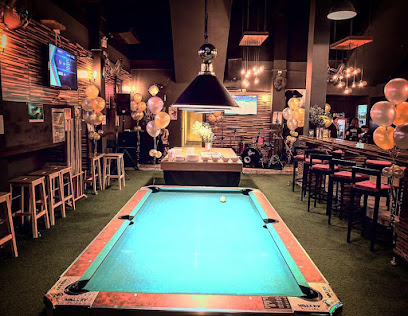
BRIQ bar
Discover the vibrant nightlife of Phuket at BRIQ Bar, where innovative cocktails and a lively atmosphere await your arrival.
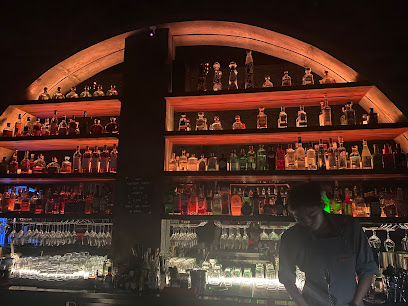
Zimplex Mixology Laboratory
Discover the art of cocktail creation at Zimplex Mixology Laboratory in Phuket, where every drink is a masterpiece waiting to be savored.
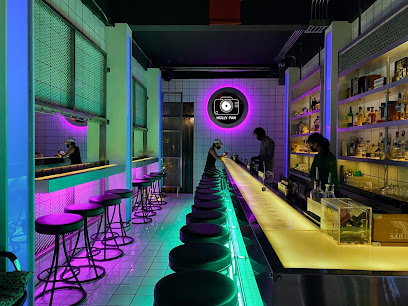
Lilly's Aussie Bar
Lilly's Aussie Bar in Phuket offers a lively sports bar atmosphere with delicious snacks and a perfect spot for catching live sports.
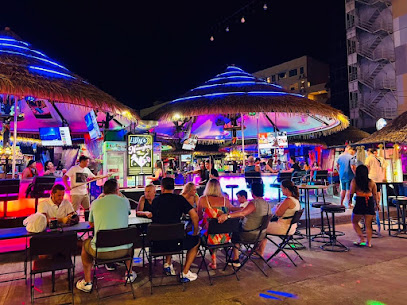
Heroes Bar
Experience the vibrant nightlife at Heroes Bar in Patong, Phuket, where good drinks and great company come together in a lively atmosphere.
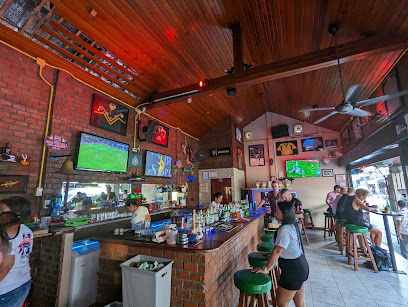
Local Phrases
-
- Helloสวัสดี
[sawasdee] - Goodbyeลาก่อน
[laa kon] - Yesใช่
[chai] - Noไม่
[mai] - Please/You're welcomeโปรด/ยินดีต้อนรับ
[proht/yin dee dton rap] - Thank youขอบคุณ
[kop khun] - Excuse me/Sorryขอโทษ
[kor toht] - How are you?สบายดีไหม
[sabai dee mai] - Fine. And you?สบายดีค่ะ คุณล่ะ
[sabai dee ka khun la] - Do you speak English?คุณพูดภาษาอังกฤษได้ไหม
[khun poot paa saa ang grit dai mai] - I don't understandฉันไม่เข้าใจ
[chan mai kao jai]
- Helloสวัสดี
-
- I'd like to see the menu, pleaseฉันอยากดูเมนู ของหน่อย
[chan yak duu menu kong noi] - I don't eat meatฉันไม่กินเนื้อ
[chan mai gin neuua] - Cheers!ชนแก้ว
[chon gaeo] - I would like to pay, pleaseฉันต้องการจ่ายเงินค่ะ
[chan tong gaan jaai ngern ka]
- I'd like to see the menu, pleaseฉันอยากดูเมนู ของหน่อย
-
- Help!ช่วยด้วย
[chuay duay] - Go away!ไปไกลๆ
[bpai glai glai] - Call the Police!โทรตำรวจ
[tor tamruat] - Call a doctor!โทรหมอ
[tor mor] - I'm lostฉันหลงทาง
[chan long tang] - I'm illฉันไม่สบาย
[chan mai sabai]
- Help!ช่วยด้วย
-
- I'd like to buy...ฉันต้องการซื้อ...
[chan tong gaan seuu...] - I'm just lookingฉันแค่ดูอย่างเดียว
[chan kae duu yang diao] - How much is it?ราคาเท่าไหร่
[raa kaa tao rai] - That's too expensiveแพงเกินไป
[paeng geen bpai] - Can you lower the price?ลดราคาได้ไหม
[lot raa kaa dai mai]
- I'd like to buy...ฉันต้องการซื้อ...
-
- What time is it?ตอนนี้กี่โมง
[dton nee kee mong] - It's one o'clockเป็นโมงเดียว
[pen mong diao] - Half past (10)สามทุ่ม
[saam toom] - Morningเช้า
[chao] - Afternoonบ่าย
[bai] - Eveningเย็น
[yen] - Yesterdayเมื่อวาน
[meua waan] - Todayวันนี้
[wan nee] - Tomorrowพรุ่งนี้
[proong nee] - 1หนึ่ง
[neung] - 2สอง
[song] - 3สาม
[saam] - 4สี่
[see] - 5ห้า
[ha] - 6หก
[hok] - 7เจ็ด
[jet] - 8แปด
[baet] - 9เก้า
[gao] - 10สิบ
[sip]
- What time is it?ตอนนี้กี่โมง
-
- Where's a/the...?...อยู่ที่ไหน
[...yoo tee nai] - What's the address?ที่อยู่อย่างไร
[tee yoo yang rai] - Can you show me (on the map)?คุณแสดงให้ฉันดูได้ไหม
[khun sa daeng hai chan duu dai mai] - When's the next (bus)?รถโดยสารต่อไปเมื่อไหร่
[roht doy saa dton bpai meua rai] - A ticket (to ....)ตั๋ว (ไป...)
[dtua (bpai...)]
- Where's a/the...?...อยู่ที่ไหน
History of Phuket
-
Phuket's history dates back to as early as the 1st century BCE, when it was inhabited by indigenous groups known as the Mani people. These early settlers were nomadic hunter-gatherers who lived in the dense jungles and coastal areas, leaving behind a legacy of cave paintings and simple tools.
-
During the 16th century, Phuket became an important trading post for tin mining, attracting Chinese and Malay traders. The island's rich tin deposits were highly sought after, leading to an influx of Chinese laborers who settled in the area. This period saw the establishment of Phuket's first formal settlements and the construction of traditional Sino-Portuguese architecture, which still stands today in the Old Town.
-
One of the most significant events in Phuket's history occurred in 1785 when the island was attacked by Burmese forces. Two local heroines, Thao Thep Kasattri and Thao Sri Sunthon, famously rallied the local population and successfully defended the island. Their bravery is commemorated annually in Phuket, and a monument in their honor stands proudly at the Tha Rua intersection.
-
Under the reign of King Chulalongkorn (Rama V) in the late 19th century, Phuket underwent significant modernization. The king recognized the island's economic importance and invested in infrastructure, including roads, schools, and hospitals. This period also saw the expansion of rubber plantations, further boosting the island's economy.
-
During World War II, Phuket was occupied by Japanese forces from 1941 to 1945. The island's strategic location made it a key point for the Japanese military. Local residents endured hardships during this period, but the end of the war saw a revival of Phuket's economy and the return of peace and stability.
-
The late 20th century marked a new era for Phuket as it transformed into one of Thailand's premier tourist destinations. The island's natural beauty, pristine beaches, and vibrant culture attracted visitors from around the world. The development of international hotels, resorts, and an airport facilitated this boom, making tourism a cornerstone of Phuket's economy.
-
On December 26, 2004, Phuket was severely impacted by the Indian Ocean tsunami. The disaster caused significant loss of life and property, but the island demonstrated remarkable resilience. International aid, combined with local efforts, led to a swift recovery, and Phuket rebuilt itself stronger than before. Memorials and museums today serve as a testament to the lives lost and the island's recovery.
-
Phuket's rich cultural heritage is celebrated through various festivals and traditions. The annual Phuket Vegetarian Festival, which dates back to the 19th century, is one of the most famous events, featuring elaborate ceremonies and processions. The island also hosts the Loy Krathong festival, Songkran (Thai New Year), and the Chinese New Year, reflecting its diverse cultural influences.
Phuket Essentials
-
Phuket is accessible by air, sea, and land. The Phuket International Airport (HKT) is the primary gateway, with numerous international and domestic flights. From Bangkok, you can take a direct flight which takes about 1.5 hours. There are also direct flights from major cities in Asia, Europe, and the Middle East. For those traveling by sea, Phuket is a popular stop for cruise ships. Alternatively, you can take a bus or drive from Bangkok, which takes approximately 12 hours by road.
-
Phuket offers various transportation options, including taxis, tuk-tuks, motorbike taxis, and public buses. Taxis and tuk-tuks are readily available, but be sure to negotiate the fare beforehand. For a more budget-friendly option, the local blue buses (songthaews) connect major beaches and Phuket Town. Renting a car or motorbike is also popular, providing flexibility to explore the island at your own pace. Be aware that traffic can be hectic, and driving requires caution.
-
The official currency in Thailand is the Thai Baht (THB). Credit cards are widely accepted in hotels, restaurants, and larger shops, but it is advisable to carry cash for smaller establishments, markets, and street vendors. ATMs are plentiful across Phuket, and currency exchange services are available at the airport, banks, and exchange booths in tourist areas.
-
Phuket is generally safe for tourists, but it's important to stay vigilant. Areas like Patong Beach are known for nightlife and may have higher instances of petty crimes such as pickpocketing. Avoid walking alone at night in secluded areas and keep an eye on your belongings in crowded places. Scams involving overpriced taxi fares or excursions can occur, so always agree on prices in advance. Be cautious with your drinks to avoid spiking incidents.
-
In case of emergency, dial 191 for police assistance, 1155 for the tourist police, and 1669 for medical emergencies. Phuket has several hospitals and clinics with English-speaking staff, including Bangkok Hospital Phuket and Phuket International Hospital. It's advisable to have travel insurance that covers medical emergencies. Pharmacies are widely available for minor health issues.
-
Fashion: Do dress modestly, especially when visiting temples or religious sites. Avoid wearing revealing clothing. Religion: Do respect local customs and traditions. Always remove your shoes before entering temples and dress conservatively. Public Transport: Do be respectful and give up your seat to elderly passengers. Avoid eating or drinking on public transport. Greetings: Do greet people with a traditional Thai 'wai,' a slight bow with palms pressed together. Eating & Drinking: Do try local delicacies and accept food offerings graciously. Don't point your feet at people or religious objects, as it is considered disrespectful.
-
To experience Phuket like a local, visit the local markets such as the Phuket Weekend Market or Chillva Market for fresh produce and unique souvenirs. Engage with locals who are often friendly and willing to share insights about the island. Enjoy a traditional Thai massage, visit less touristy beaches like Nai Harn or Kata Noi, and explore the old streets of Phuket Town for an authentic cultural experience. Don't miss out on local festivals like Songkran (Thai New Year) and the Phuket Vegetarian Festival for a deeper cultural immersion.
Trending Landmark in Phuket
-
The Big Buddha, Phuket
-
Cape Phrom Thep
-
Tiger Kingdom - Phuket
-
Freedom Beach
-
Windmill Viewpoint
-
Saphan Hin
-
Green Elephant Sanctuary Park
-
Phuket 3D Museum
-
Kathu Waterfall
-
Ancient buildings in Sino-European style
-
Monkey Hill Viewpoint
-
Aquaria Phuket
-
The Upside Down House Museum and Attraction Phuket
-
Tsunami Memorial Park
-
Nui Beach
Nearby Cities to Phuket
-
Things To Do in Krabi
-
Things To Do in Trang
-
Things To Do in Surat Thani
-
Things To Do in Nakhon Si Thammarat
-
Things To Do in Ranong
-
Things To Do in Langkawi
-
Things To Do in Satun
-
Things To Do in Koh Samui
-
Things To Do in Chumphon
-
Things To Do in George Town
-
Things To Do in Penang
-
Things To Do in Kota Bharu
-
Things To Do in Ipoh
-
Things To Do in Medan
-
Things To Do in Cameron Highlands


















